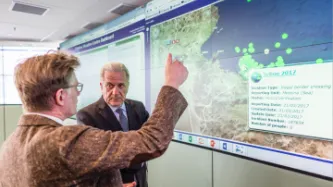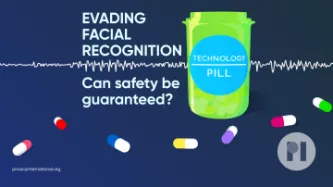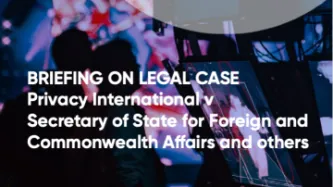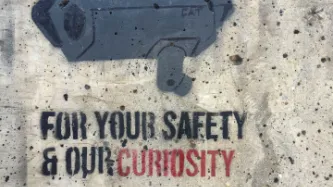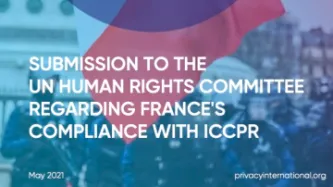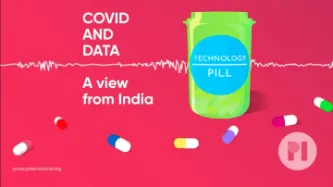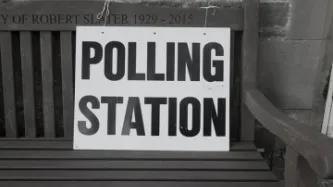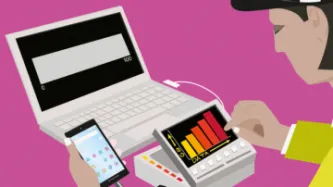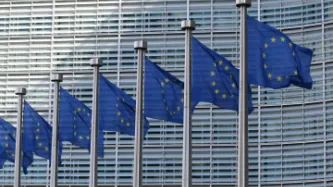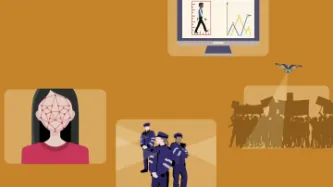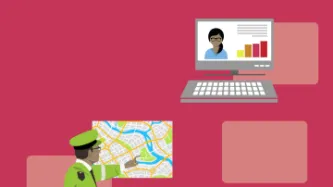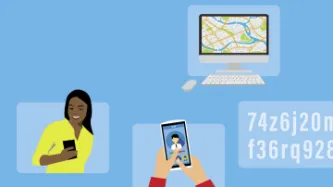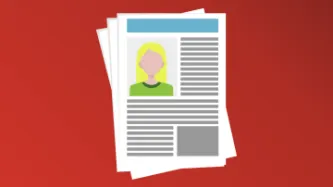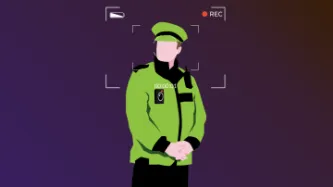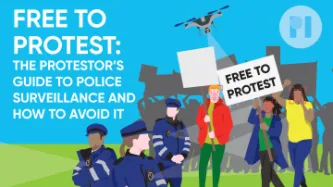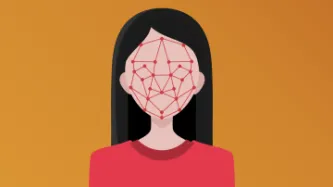Advanced Search
Content Type: News & Analysis
As Amnesty International and Forbidden Stories continue to publish crucial information about the potential targets of NSO Group’s spyware, we know this much already: something needs to be done.
But what exactly needs to be done is less obvious. Even though this is not the first time that the world has learned about major abuses by the surveillance industry (indeed, it’s not even the first time this month), it’s difficult to know what needs to change.
So how can the proliferation and use of…
Content Type: News & Analysis
A new industry is offering border agencies around the world access to advanced space-based surveillance capabilities once reserved for the most advanced intelligence agencies. Using satellites able to track signals from satellite phones and other emitters, these companies are then selling access to the data obtained to anyone willing to pay, including UK and EU border agencies.
While such surveillance can and is being used to save lives, it can also be used for illegal ‘pull backs’ in…
Content Type: Examples
In January 2021, the Indian Health Ministry officially allowed Aadhaar-based authentication when creating a UHID for identification and authentication of beneficiaries for various health IT applications promoted by the Ministry. This enabled the Co-Win portal, which is used to book COVID-19 vaccination appointments, to accept Aadhaar for authentication. As per Clause 2a of Co-Win’s privacy policy, “If you choose to use Aadhaar for vaccination, you may also choose to get a Unique Health ID…
Content Type: Video
<br />
Links
- You can find out more about the ECI here: pvcy.org/banbiometrics (If you're a European Citizen you can even sign it!)
- You can find EDRi's masks (and their masks for MEP programme) here: https://edri.org/take-action/donate-mask/ and you can find out more about the project here: https://edri.org/our-work/can-a-covid-19-face-mask-protect-you-from-facial-recognition-technology-too/
- You can take the Paper Bag Society challenge on mosts social media platforms -…
Content Type: Long Read
Additionally, in January 2020 Privacy International and UK-based NGO Liberty filed a new claim against MI5 and the Secretary of State for the Home Department in the Investigatory Powers Tribunal (the “Ungoverned Spaces Case”, this time, the case sought to hold MI5 and the SSHD accountable for systemic, long-term failures in the way they handle and retain millions of people’s personal data. As part of this claim, PI requested that the IPT re-opens parts of the original BPD/BCD. This aspect of…
Content Type: News & Analysis
What happened
On 22 July 2021, the Investigatory Powers Tribunal (IPT) issued a declaration on our challenge to the UK bulk communications regime finding that section 94 of the Telecommunications Act 1984 (since repealed by the Investigatory Powers Act 2016) was incompatible with EU law human rights standards. The result of the judgment is that a decade’s worth of secret data capture has been held to be unlawful. The unlawfulness would have remained a secret but for PI’s work.
You…
Content Type: Press release
Amnesty International, Privacy International and The Centre for Research on Multinational Corporations (SOMO) have published a report uncovering NSO Group’s entire corporate structure, tracking the global money trail of both public and private investment into the lucrative spyware company.
Amnesty International and other rights groups have documented dozens of cases of NSO Group’s products being used by repressive governments across the world to put activists, journalists, and opposition…
Content Type: Explainer
An array of digital technologies are being deployed in the context of border enforcement. Satellite and aerial surveillance are part of the surveillance toolkit and yet, they are also used by organisations seeking to hold government actions to account and improve efficacy of their own work. To effectively critique state use and delve into potential benefits of satellite and aerial surveillance, we must first understand it.
In this explainer we dig into a technology which many are aware of for…
Content Type: News & Analysis
Last month, the World Health Organization published its guidance on Ethics and Governance of Artificial Intelligence for Health. Privacy International was one of the organisations that was tasked with reviewing the report. We want to start by acknowledging that this report is a very thorough one that does not shy away from acknowledging the risks and limitations of the use of AI in healthcare. As it is often the case with guidance notes of this kind, its effectiveness will depend on the…
Content Type: Advocacy
On May 2021, we made a submission for the 132nd Session of the Human Rights Committee that took place between 28 June 2021 and 23 July 2021 in relation to France’s compliance with the International Covenant on Civil and Political Rights (ICCPR) before the adoption of the List of issues prior to reporting (LoIPR).
We called the UN Human Rights Committee to include in the list of issues to the French government the following:
Emergency measures taken in response to the Covid-19 pandemic, and…
Content Type: Advocacy
En mai 2021, nous avons fait une soumission pour la 132ème session du Comité des droits de l’homme qui a eu lieu entre le 28 juin 2021 et le 23 juillet 2021 en relation avec la conformité de la France avec le Pacte international relatif aux droits civils et politiques (PIDCP) avant l’adoption de la liste de points à traiter avant présentation de rapports (LoIPR).
Nous avons appelé le Comité des droits de l’homme de l’ONU à inclure dans la liste des questions au gouvernement français les points…
Content Type: Video
<br />
Links
You can find the Co-win vaccination website here: https://www.cowin.gov.in/
You can support PI at pvcy.org/donate and you can find out more about the Centre for Internet and Society at https://cis-india.org/
CIS also have a podcast, it’s called In flux and you can find it on all your favourite podcast apps and at https://in-flux.cis-india.org/
Like and subscribe to the podcast on which ever platform you use. It’s also available on our website at…
Content Type: News & Analysis
This article was written by Abdías Zambrano, Public Policy Coordinator at IPANDETEC, and is adapted from a blog entry that originally appeared here.
Digital identity can be described as our digital personal data footprint, ranging from banking information and statistics to images, news we appear in and social network profiles, interactions with and in digital platforms, and information contained in private and public repositories. Our whole life is online, often leaving us with little choice…
Content Type: News & Analysis
Legislation to "strengthen the integrity of UK elections and protect our democracy" through the Elections Integrity Bill was introduced to parliament this week.
This legislation will require people, for the first time in Great Britain, to show a state-issued photo ID, such as a driving license or passport, in order to exercise their right to vote, perhaps by the 2023 General Elections. The changes would affect elections in England, Scotland and Wales while voters in Northern Ireland are already…
Content Type: News & Analysis
Around the world, we see migration authorities use technology to analyse the devices of asylum seekers. The UK via the Policing Bill includes immigration officers amongst those who can exercise powers to extract information from electronic devices. There are two overarching reasons why this is problematic:
The sole provision in the Policing Bill to extract information rests on voluntary provision and agreement, which fails to account for the power imbalance between individual and state. This…
Content Type: Examples
It is said, better late than never. Some activists and academics, hesitantly, thought the old maxim could be applied to the Centre's micro-credit facility for street vendors – which was indisputably behindhand, in the wake of the coronavirus-triggered lockdown, announced on March 24.
But, more than a month down the line since its launch, the programme is not proving to be any beneficial either.
The majority of the eligible vendors are not able to avail the Rs. 10,000 loan, under the Pradhan…
Content Type: News & Analysis
It is difficult to imagine a more intrusive invasion of privacy than the search of a personal or home computer ... when connected to the internet, computers serve as portals to an almost infinite amount of information that is shared between different users and is stored almost anywhere in the world.
R v Vu 2013 SCC 60, [2013] 3 SCR 657 at [40] and [41].
The controversial Police Crime Sentencing and Courts Bill includes provision for extracting data from electronic devices.
The Bill…
Content Type: Examples
On 21 April 2020, it was published in the Official Gazette of Mexico City that 4,264 non-salaried workers would be granted basic economic support in a single payment to cope with the health emergency.
The Ministry of Labour and Employment Promotion (STyFE) had the possibility to launch this programme, due to the registration it has as it is in charge of granting work licenses. That is why they decided to grant it to 4,264 people with valid or pending credentials and for whom a budget of 6,396,…
Content Type: Long Read
This is based on UK data protection legislation. The UK’s General Data Protection Regulation (UK GDPR) does not apply to processing of personal data for law enforcement purposes by relevant authorities.
What can happen to my personal data at a peaceful protest?
The most common personal data processed at a protest are notes and photographs taken by police officers, along with voice and video recordings taken from body-worn cameras or drones.
Data processing can also happen with…
Content Type: Long Read
Photographing or filming incidents involving police and protestors is an important way of holding the police to account for their actions. Members of the public and the media do not need a permit to film or photograph in public places and police have no power to stop them filming or photographing incidents or police personnel.[1]
Can the police stop and search me for filming or taking photographs?
The police have the discretion to ask you to move back if they think you are interfering with…
Content Type: News & Analysis
Imagine going to a peaceful protest and having to show your ID to the police before you can join it. Or having to fill out a form about why you are attending that particular protest.Sounds absurd, right? Surely we should all be free to protest, without the police knowing who we are?But high tech surveillance of protests is real, and it enables the police to identify, monitor and track protestors, indiscriminately and at scale.For example, your face is increasingly becoming your ID card with the…
Content Type: Explainer
‘Free to Protest: The protestor’s guide to police surveillance and how to avoid it’ (UK edition) is a collection of bite-sized guides about high-tech police surveillance capabilities at protests, including tips and strategies about how you can protect yourself from being identified, tracked and monitored. Each guide is self-contained so you don’t need to read the whole thing, or read it any particular order. You can access each separate section of the guide from the campaign homepage, but if…
Content Type: Long Read
Social protection programmes can be broadly understood as government support for individuals to meet basic human needs, protecting citizens from the “economic risks and insecurities of life”. These policies and programmes are essential to reducing the lifelong consequences of poverty and exclusion. Programmes like cash transfers – including child grants, school meals, skills development and more – help connect families with health care, nutritious food and quality education. To ensure that…
Content Type: People
Clara is a Digital Campaigns and Fundraising Officer at Privacy International. She works to develop our supporter communications and fundraising programme. Prior to joining PI, Clara held fundraising roles at several international campaigning organisations.

